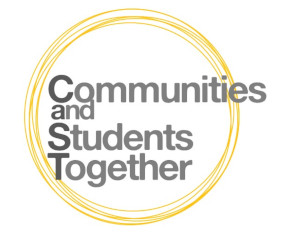CaST First On line Symposium on Community Engaged Learning. A follow-up
The Communities and Students Together (CaST) first online symposium on Community Engaged Learning was organised by Ghent University on Thursday 25th February 2021.
CaST Partners had the opportunity to share the first 2 outputs on Community Engaged Learning with colleagues and the wider community, and also to learn from other experts in the field.
The partecipants were welcomed by Lindsey Anderson, CaST Project Manager from the University of Exeter.
Then Alex Chmelka from the University of Magdeburg talked about the CaST State of the Art Report and the positive effects for students applying the theory learned at Higher Education Institutions to a context outside of HEI.
Courtney Marsh and Noel Klima from Ghent University gave enphasis to the second intellectual output of the Erasmus+ project CaST- Communities and Students Together: the CaST Case Studies Compendium “Engaged Learning in Europe”, coordinated by Ghent University, now available to download from the CaST project website.
The first session was dedicated to the experience of Alexis Dewaele from Ghent University on “How to activate community engagement” with his project “Community problem solving with challenged youth”.
In the second session on “Incorporating Engaged Learning into the curriculum”, Katja Rusinovic from The Hague University of Applied Science and Wilbert Hoondert from the City of Delft, talked about “The City Deal on Education”.
The third session theme “Recognition and implementation of EL at the university level “ was introduced by Emma McKenna from The Science Shop, Queen’s University Belfast.
During the three sessions partecipants asked many questions to the speakers making the event very lively and engaging and an interesting occasion to exchange solutions.
The presentations from each of our speakers have been uploaded and available from the "Download" section on of the CaST website.
Archives
- 10/11/2022 - NEW! CaST Anthology now available
- 25/09/2022 - NEW! CaST Toolkit now available
- 04/04/2022 - NEW! CaST FINAL International Conference in MALAGA on April 28th
- 01/04/2022 - NEW! CaST Pilot Synthesis now available
- 25/04/2021 - NEW! Ghent University Podcast on "A dash of SaLT": Discussions with experts on Sociology and Learning Theory in today’s society.
- 26/02/2021 - NEW! Case Study Compendium now available
- 25/02/2021 - CaST First On line Symposium on Community Engaged Learning. A follow-up
- 20/02/2021 - An insight on WP2: State-of-the-Art Review
- 19/02/2021 - CaST first symposium on Community Engaged Learning - Thursday 25th February 2021
- 25/11/2020 - Welcome to the CaST project and website
- 24/11/2020 - Next CaST Partner meeting online: Ghent, 26 November 2020

